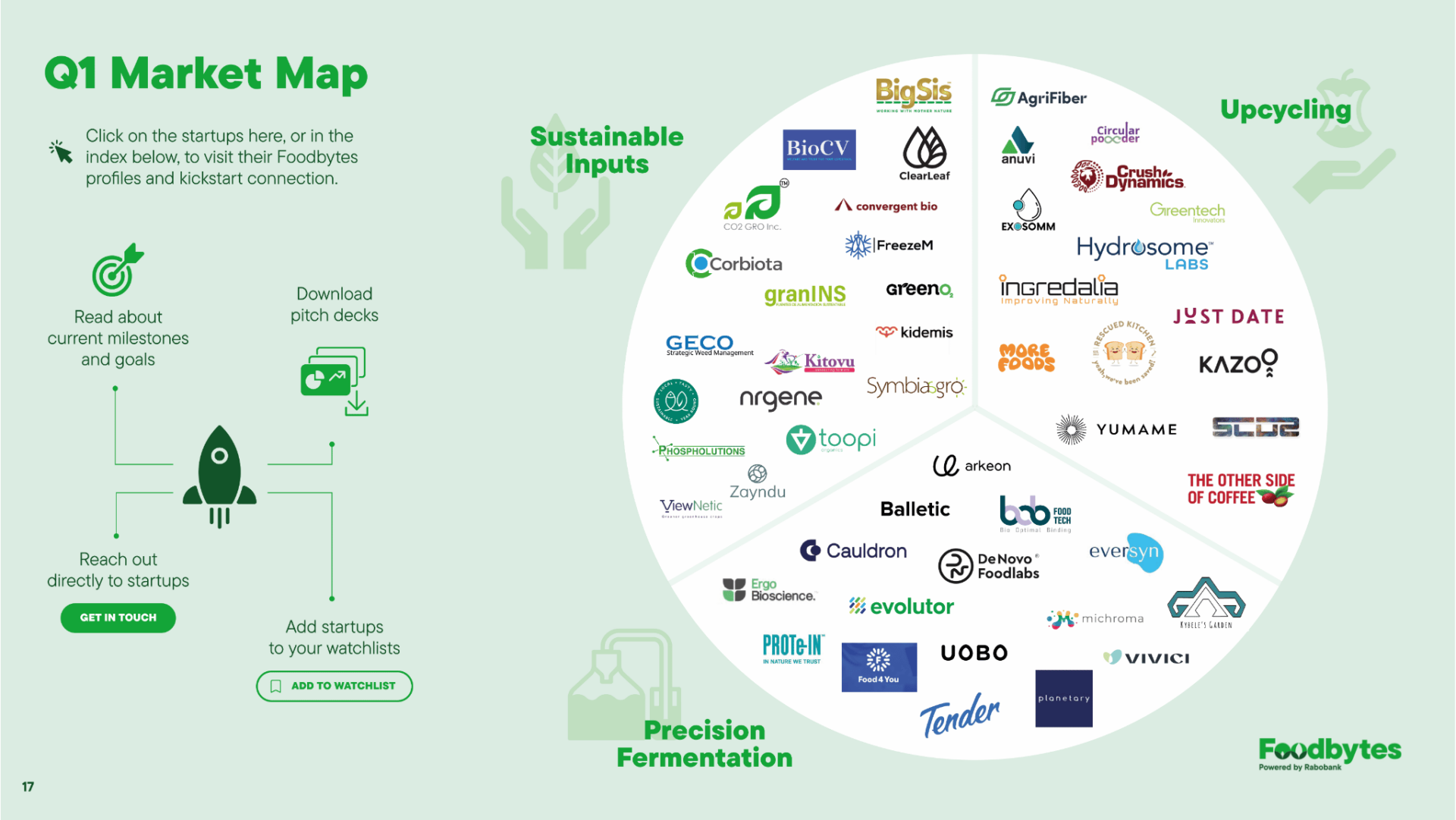
Food and ag startups seek partnerships with established corporations to gain access to resources, funding and customer networks. While corporate collaboration with startups is done to drive innovation, sustainability and profitability and gain insights into emerging technologies.
In the almost decade that Foodbytes has been galvanizing collaborations between startups and corporates, these are most effective strategies startups can employ to approach corporations effectively and create mutually beneficial partnerships, as our own Nina Meijers recently discussed on a panel at Supply Change Capital’s Food Tech House at SXSW.
1. Assess Your Own Readiness
Ensure your intellectual property is protected before engaging with a corporate partner. Identify a specific pain point within the corporate’s business operations that your solution can address. F&A corporates now largely prioritize tech readiness over long-term relationship building. Be able to demonstrate that your technology is ready for testing and deployment.
2. Avoid the Obvious Choices
While it’s tempting to target well-known, multi-national corporates, consider exploring partnerships with smaller more nimble companies. Mid-sized privately held businesses often have the technical capabilities, distribution networks, and integrated innovation strategies that align well with startups.
3. Do Your Research
Investigate the corporate’s track record in collaborating with startups. Seek feedback from other founders who have worked with them. Due diligence is crucial to avoid surprises later in the partnership.
4. Define Your Engagement
Clearly outline the scope of your collaboration. Are you seeking a joint venture (JV), a customer relationship or investment? Align your expectations from the outset and take the time needed to do so.
Foodbytes Startup-Corporate Collaboration Spotlight: Marble
Pioneering automation tech for meat processing. The founding team’s experience with high-profile JV’s allowed them to understand their clients’ aversion to change. Marble built trust with corporate partners through clear pilot-to-contract expectations. Their technology can independently operate with competing clients, which was crucial in the consolidated meat processing industry.
5. Set an Engagement Timeline
Avoid getting stuck in a corporate’s lengthy research and development (R&D) cycle. Set a defined timeline for your collaboration. Additionally, explore opportunities to work with different departments within the corporate to maximize impact.
Foodbytes Startup-Corporate Collaboration Spotlight: Cruz Foam
Sustainable packaging platform. They leveraged an exclusive contract with a packaging giant to achieve scale. The agreement had well-defined parameters, including exclusivity duration, applications and revenue expectations within a time-bound contract.
6. Align on Success Metrics
Define success metrics that benefit both parties. This could look like a progression from material transfer agreements, to becoming a customer to potentially securing investment.
Dive Deeper on May 8 Startup Roundtable
Successful startup-corporate collaboration requires strategic planning, clear communication, and a shared vision. Hear first-hand dos and don’ts from collaboration experts in our network on our May 8 Virtual Roundtable (11am-12pm ET). Receive an exclusive invite if you join the Foodbytes hub by May 7.
